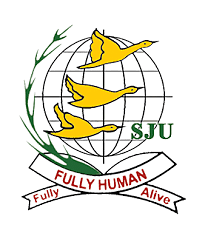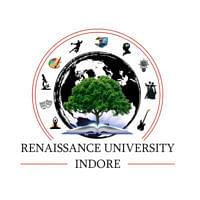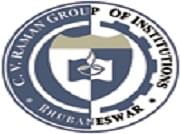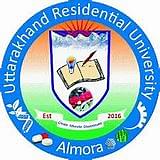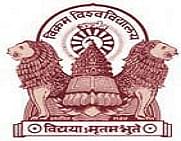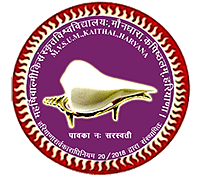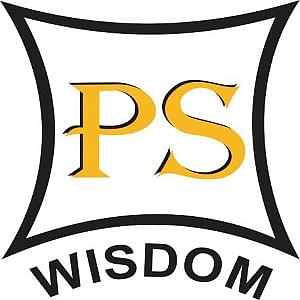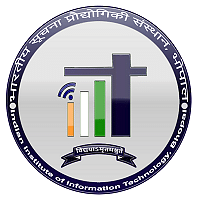Introduction about Ph. D in Entomology
Ph.D. in Entomology from top college is a rigorous and advanced academic program dedicated to the study
of insects and their relationships with humans, other organisms, and the
environment. This field of study encompasses a wide range of topics, including
insect physiology, behavior, ecology, taxonomy, and the roles insects play in
agriculture, health, and biodiversity.
Key Components of a Ph.D. in Entomology
Coursework:
Core Subjects: Advanced insect physiology, insect
taxonomy, insect behavior, molecular entomology, and insect ecology.
Elective Courses: Topics such as integrated pest management,
forensic entomology, medical entomology, and insect-plant interactions.
Research Methods: Courses on experimental design,
statistical analysis, and various laboratory and field techniques relevant to
entomological research.
Research:
Dissertation: A major component of the Ph.D. program is
conducting original research that contributes new knowledge to the field of
entomology. This involves formulating a research question, designing and
conducting experiments or field studies, analyzing data, and writing a
dissertation.
Publications: Students are often encouraged or required
to publish their research findings in peer-reviewed scientific journals.
Comprehensive Exams:
Students typically
need to pass comprehensive exams that test their knowledge of entomology and
related fields. These exams can include written and oral components and are
designed to ensure students have a thorough understanding of their subject
area.
Teaching and Outreach:
Many Ph.D. programs
in entomology include opportunities for students to gain teaching experience,
either as teaching assistants or instructors. Outreach activities might involve
educating the public about insects and their importance.
Professional Development:
Ph.D. programs
often provide training in grant writing, science communication, and other
professional skills. Networking opportunities, such as attending conferences
and collaborating with other researchers, are also crucial for career
development.
Career Opportunities
Graduates with a
Ph.D. in Entomology can pursue a variety of career paths, including:
Academic Positions: University faculty roles involving teaching
and research.
Research Scientists: Positions in government agencies, such as
the USDA, or private sector companies, focusing on areas like pest control,
biotechnology, or environmental monitoring.
Agricultural and Environmental
Consulting: Providing expertise
on pest management and sustainable agricultural practices.
Public Health: Working in vector control programs to
manage insects that transmit diseases to humans.
Conservation and Biodiversity: Roles in organizations focused on preserving
insect diversity and ecosystems.
Importance of Entomology
Entomology is
crucial for understanding and addressing various global challenges. Insects
play essential roles in ecosystems, such as pollination, decomposition, and
serving as food sources for other animals. They can also be pests, vectors of
diseases, and beneficial organisms in agriculture. Thus, entomologists
contribute to fields ranging from food security and public health to
conservation and climate change adaptation.
In summary, a Ph.D.
in Entomology equips students with deep knowledge and specialized skills to
advance scientific understanding and address practical challenges involving
insects. It is a multidisciplinary field that offers diverse and impactful
career opportunities.
What is admission process for Ph. D in Entomology ?
The admission process 2024 Ph.D. in Entomology typically involves several key steps, which
may vary slightly depending on the specific university or program. Here is a
general outline of the process:
1. Research Programs and Identify Potential Advisors
Research Programs: Start by identifying universities and
programs that offer a Ph.D. in Entomology. Look for programs that align with
your research interests and career goals.
Potential Advisors: Identify faculty members whose research
interests match yours. It's often beneficial to contact them to discuss your
interests and inquire about potential openings in their labs.
2. Meet Admission Requirements
Educational Background: Most programs require a bachelor’s or
master’s degree in entomology, biology, zoology, or a related field.
GPA: A competitive GPA, often 3.0 or higher on a 4.0 scale, is typically
required.
3. Prepare Application Materials
Transcripts: Official academic transcripts from all
previously attended institutions.
Letters of Recommendation: Usually 2-3 letters from academic or
professional references who can speak to your qualifications and potential as a
researcher.
Statement of Purpose: A detailed essay outlining your research
interests, career goals, and reasons for pursuing a Ph.D. in Entomology.
Mention any faculty members you are interested in working with.
Curriculum Vitae (CV): A comprehensive CV detailing your academic
background, research experience, publications, presentations, and any relevant
work experience.
Standardized Test Scores: Some programs may require GRE scores,
though this requirement is becoming less common.
4. Application Submission
Online Application: Complete the university’s online
application form. Ensure that all required documents are uploaded and any
application fees are paid.
Application Deadlines: Be mindful of application deadlines, which
can vary between programs. Deadlines are often several months before the start
of the academic term.
5. Interviews
Interview Process: Shortlisted candidates may be invited for
an interview. This can be conducted in person, over the phone, or via video
conferencing.
Preparation: Be prepared to discuss your research
interests, experience, and why you are interested in the program. This is also
an opportunity for you to ask questions about the program, faculty, and
research facilities.
6. Financial Support
Funding Opportunities: Inquire about funding options, such as
research assistantships, teaching assistantships, and fellowships. Many Ph.D.
programs offer funding packages that cover tuition and provide a stipend.
7. Admission Decision
Notification: Admission decisions are typically
communicated several weeks to months after the application deadline.
Acceptance: If accepted, you will need to confirm your
intention to enroll by a specified date. You may also need to submit a deposit
to secure your place in the program.
8. Preparation for Enrollment
Visa and Immigration (for International
Students): If you are an
international student, begin the visa application process and ensure all
immigration paperwork is in order.
Relocation and Housing: Arrange for housing and plan your
relocation to the university’s location.
Orientation: Participate in any orientation sessions
provided by the university to help you acclimate to the program and community.
Additional Tips
Early Preparation: Start preparing your application materials
well in advance of deadlines.
Networking: Attend relevant conferences and workshops
to network with professionals and faculty in the field of entomology.
Tailored Applications: Customize your application materials to
highlight how your interests and goals align with the specific program and
potential advisors.
By following these
steps and ensuring your application materials are thorough and well-prepared,
you can improve your chances of being admitted to a Ph.D. program in
Entomology.
What is eligibility for Ph. d in Entomology ?
Eligibility for PhD in Entomology typically varies by institution, but there are common
requirements that most programs share:
Educational Background:
A Master's degree
in Entomology, Biology, Zoology, or a related field is usually required. Some
programs might accept candidates with a Bachelor’s degree if they have
exceptional academic records and relevant research experience.
Academic Performance:
A strong academic
record is essential, often with a minimum GPA requirement (commonly around 3.0
on a 4.0 scale).
Research Experience:
Demonstrated
research experience in entomology or related fields. This can include
undergraduate or master's thesis work, publications, or relevant research
projects.
Standardized Test Scores:
Some programs
require GRE (Graduate Record Examination) scores, though this requirement is
becoming less common. Specific subject tests might be required by some
institutions.
Letters of Recommendation:
Typically, 2-3
letters of recommendation from academic or professional references who can
speak to the candidate’s qualifications and potential for research.
Statement of Purpose:
A detailed
statement outlining the candidate’s research interests, career goals, and
reasons for pursuing a PhD in Entomology.
Interview:
Some programs may
require an interview, either in-person or online, as part of the selection
process.
English Proficiency:
For international
students, proof of English proficiency through tests like TOEFL or IELTS is
often required.
Application Materials:
Complete
application form, transcripts from all post-secondary institutions attended,
and any additional materials specified by the program.
Each university may
have specific additional requirements or variations in these criteria, so it’s
essential to check the specific requirements of the programs to which you are
applying.
What is syllabus for Ph. D in Entomology ?
The syllabus for PhD in Entomology varies by institution and specific research focus, but
generally includes a combination of coursework, research, and dissertation
work. Here are the typical components:
Core Coursework
Advanced Entomology:
In-depth study of
insect physiology, anatomy, taxonomy, and systematics.
Understanding
insect development, behavior, and ecology.
Insect Ecology and Behavior:
Interaction of
insects with their environment, including biotic and abiotic factors.
Study of insect
behavior patterns and their ecological significance.
Insect Physiology and Biochemistry:
Detailed
examination of insect physiological processes and biochemical pathways.
Molecular Entomology:
Genetic and
molecular techniques applied to the study of insects.
Genomics,
proteomics, and biotechnology in entomology.
Insect Pathology:
Study of diseases
affecting insects and their implications.
Pathogens including
viruses, bacteria, fungi, and nematodes.
Integrated Pest Management (IPM):
Strategies and
practices for controlling pest populations.
Sustainable and
environmentally friendly pest management techniques.
Specialized Electives
Students can choose
from various electives based on their research interests:
Aquatic Entomology:
Study of insects in
freshwater ecosystems.
Medical and Veterinary Entomology:
Insects affecting
human and animal health.
Vector biology and
control measures.
Agricultural Entomology:
Impact of insects
on crop production.
Methods for
managing agricultural pests.
Forensic Entomology:
Use of insect
evidence in legal investigations.
Chemical Ecology:
Study of chemical
interactions between insects and their environment.
Research Components
Research Methodologies:
Advanced research
techniques and experimental design.
Statistical methods
and data analysis in entomological research.
Laboratory and Fieldwork:
Hands-on experience
in collecting, identifying, and analyzing insect samples.
Field experiments
and ecological studies.
Dissertation
Proposal Development:
Writing and
defending a research proposal.
Comprehensive
literature review on the chosen research topic.
Original Research:
Conducting original
research under the guidance of a faculty advisor.
Regular progress
reports and meetings with the dissertation committee.
Dissertation Writing and Defense:
Writing the
dissertation, which includes the introduction, methods, results, discussion,
and conclusion.
Public defense of
the dissertation research.
Seminars and Workshops
Participation in
departmental seminars, workshops, and conferences.
Presenting research
findings to peers and faculty.
Teaching and Outreach
Opportunities to
assist in teaching undergraduate courses.
Engagement in
outreach activities to promote entomological knowledge.
Comprehensive Examinations
Written and/or oral
exams covering core and specialized knowledge in entomology.
Each program might
have additional or slightly different requirements, so it’s essential to
consult the specific PhD program’s curriculum at the institution you are
interested in.





